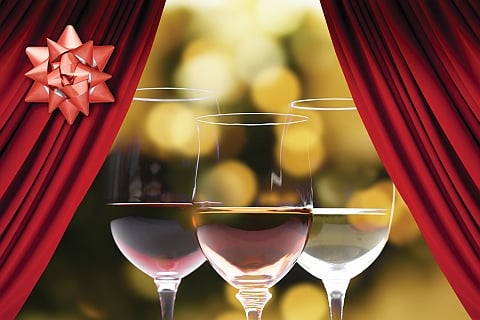Are you a wine snob or a wine fascist? As a wine writer, I have been accused of the former and plead guilty to the latter. Before you put this article aside in disgust, let me explain.
The difference between a wine snob and a wine fascist is that a wine snob delights in parading his knowledge, whereas a wine fascist would rather keep that knowledge to himself. (When it comes to wine, women are more democratic than men and are rarely either wine snobs or wine fascists.)
Here is an example of wine fascism that made me realize that I was a fellow traveller. Some years ago, a wine writer colleague (who will remain nameless to preserve his marriage) offered the following confession: “When my in-laws come over for dinner I open my best red wines ... because they only drink white.”
I nodded in the way you do when you are spontaneously horrified by such unabashed candour while at the same time realizing that you too are guilty of this kind of thought process. Own up. When was the last time you wondered if your dinner guests were worthy of the wine you had nurtured for years in your cellar? Was it at your daughter’s wedding. (Did the head table get the champagne and the rest of the guests get the Prosecco? That, gentle reader, is another example of wine fascism.)
Richard Nixon may or may not have been a crook, but he was certainly one of my brethren when it comes to cellar control. Nixon, apparently, had a passion for red Bordeaux, particularly Château Margaux. In All the President’s Men, Woodward and Bernstein’s book about the Watergate cover-up, the Washington Post reporters refer to Nixon’s practice of serving wine aboard the presidential yacht, the USS Sequoia.
When he was entertaining senators from the Southern states he instructed his wait staff in how the wine was to be served. Since the senators’ predilection was for Bourbon, which they drank liberally before dinner, Nixon had the servers pour Mouton Cadet during the meal, as the senators’ palates were already anesthetized by Manhattans, Old Fashioneds and Juleps. He had a bottle of Margaux 1966 wrapped in a towel served only to him. Well played, Mr. President, says I.
There is nothing more torturous for a wine nut than to see one of your best wines being knocked back by those who (a) don’t know what they’re drinking and (b) would rather have something else if they were offered the choice.
There are so many stories of kids who get into their parents’ wine cellars and carry off bottles of First Growth Bordeaux and Domaine-bottled Burgundies to frat parties that they have become urban legends. Or book club ladies who consume icon wines that have been kept for a special occasion. On that score, too many wines are kept for “special occasions” only to find that most occasions are not special enough and when the wine is finally opened it is either maderized (for whites) or completely dried out (for reds).
To avoid that problem, the canny collector will set aside one shelf in the cellar that is available to anyone in the household of drinking age. I have such a shelf for my wife, Deborah. She knows the difference between Bordeaux and Burgundy, but she belongs to a ladies’ book club whose members have as prodigious an appetite for the fermented grape as they do for the contemporary novel. The trick, I find, is to keep her shelf well stocked with an eclectic assortment of high-alcohol wines.
Another aspect of the oenological fascism syndrome is the “Conjuror Host.” He can make a bottle disappear before your very eyes. Let me explain how he does this particular illusion: you’re invited to a dinner party and you would like to bring along a bottle of wine that you have been saving but have never quite found the right occasion to open. You know that your host himself has a good cellar, so he and his guests will appreciate the wine you are offering them. When you hand the bottle to him, he looks at the label, his eyes widen and he smiles. He thanks you profusely and immediately disappears with it down to his cellar as if the ambient temperature in his hallway might affect its health. And that is the last you will ever see of it.
There is only one way to deal with such a scoundrel. Decant the wine at home and carry it carefully to your destination. Tell your host that the wine needed at least two hours’ breathing to open up so that everyone could enjoy it. If he expresses some displeasure, tell him that the last time you brought a 1982 Mouton-Rothschild to a dinner party it turned out to be corked and you didn’t want to have to suffer that embarrassment again.
You’re smiling. Welcome to the club.
Tony Aspler is the author of 17 books on wine, including his latest, Canadian Wineries.





